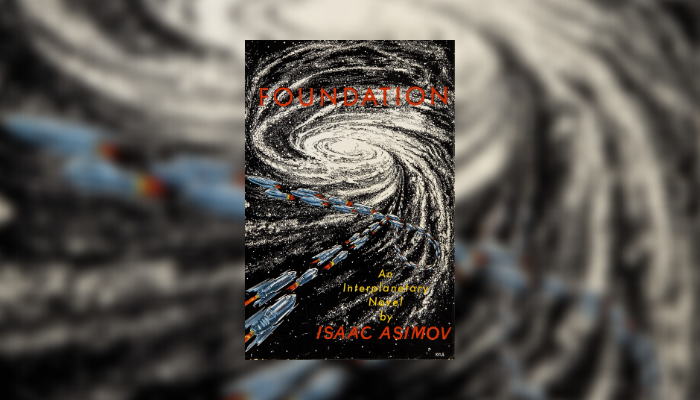|
Isaac Asimov's Foundation (1951) is the first novel of the legendary author's long-running, galaxy-spanning series. Documenting the gradual fall of the immense Galactic Empire and the rise of new powers in its wake, the Foundation series is one of the most iconic in all science fiction. Each novel in the original trilogy - which Asimov augmented much later with prequels and sequels - was compiled from previously published, shorter works. Foundation itself collects four short stories that first saw the light of day in 1942 and 1944, completed by a final fifth story written specifically for the novel version. The over-arching story focuses on an unusual conceit: the scholar Hari Seldon has perfected a new science called "psychohistory". Using its ability to model the mass action of billions of people, Seldon predicts the destruction of the Galactic Empire. In order to shorten the period of barbarism that is sure to follow, Seldon sows the seeds for two new "foundations", at opposite ends of the galaxy, to become the beginnings of a new empire. The five stories that make up Foundation cover many decades of future history, and involve dozens of planets and characters. It is a classic science fiction setup, but the novel is no space opera - Asimov's style is radical and certainly won't please all modern readers.
Strikingly, the vast majority of the text of Foundation consists of dialogue. Asimov dedicates precious little space to conventional exposition, and virtually none to description of people, places or objects. Elmore Leonard later advanced this as good practice for a writer, but Asimov took it to extremes. His locations are blank backdrops for events, while his characters are totally one-dimensional. They are static and unchanging, but serve two purposes: as mouthpieces for exposition, and as cogs in Asimov's grand plot. The novel is also unexciting - the occasional battle is mentioned only in passing. Women are almost completely absent. Asimov's approach is unsatisfying in terms of character, setting, and emotion - the kinds of benchmarks we often set for fiction. However, Foundation is still a very engaging novel in other ways, and quite radical compared with much science fiction of its era. While it is in its own way every bit as dated as, say, Galactic Patrol, it is more thought-provoking and full of ideas. Individual personalities are not emphasised in Asimov's fiction in general, but this is particularly true in Foundation. The author's focus is on societies - how they adapt to survive, and how new ones might emerge in the wake of a collapsing interstellar empire. Asimov had little interest in how a spacecraft might look or how people might dress 10,000 years from now. Nor does his work focus on the trappings of pulp sci-fi, like hostile aliens and atomic rayguns (although the latter do show up from time to time). Due to its extremely unadorned style, rejection of excitement, and downplaying of the significance of individual action Foundation is surely an acquired taste - particularly today However, its uniqueness has its own appeal and the story's sheer scale and enormous influence on science fiction are undeniable. As a sci-fi novel which inspired much of the genre today, but is also radically unlike modern fiction in its approach, Foundation is an intriguing prospect. For those who take a real liking to Asimov, it's also a key lynchpin in his sprawling connected universe, which has gone onto be expanded still further by other writers.
0 Comments
Your comment will be posted after it is approved.
Leave a Reply. |
About
Exploring classic science fiction, with a focus on the 1950s to the 1990s. Also contributing to Entertainium, where I regularly review new games. Categories
All
|

